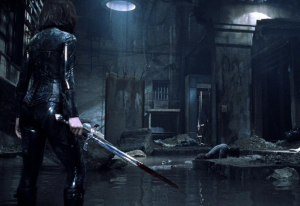There are a handful of tropes in anime that stand tall as the best of the best. From the hero who overcomes pitfalls and a tragic backstory to triumph, to the silly goofball who just happens to trip into the right circumstances, these constants never seem to fail. However, one classic trope has made its way into a new Netflix movie, and it proves that Magical Girls might be the most powerful anime staple of all.
Videos by ComicBook.com
KPop Demon Hunters is the new hit animated movie on Netflix. Made by Sony Animation, the story follows a K-pop girl band who also happens to be the only thing standing between an army of Demons and the free world. Using their magically enhanced voices, they are able to fend off demons and protect the Honmoon, a sacred barrier that strengthens as their vocal careers grow. While these heroes aren’t undergoing a magical transformation scene akin to Sailor Moon, their metaphorical transformations are just as intense and have all the elements a good magical girl anime needs to stick with viewers.
Rumi Is Peak Magical Girl in KPop Demon Hunters

The core requirement of most Magical Girl protagonists is a desire to do good, even if personality traits, obstacles, or bad guys try to get in the way. Rumi is the definition of these traits. They also tend to be a bit goofy or have moments where they become relatable as people, and not just admirable as heroes. These lapses make them human and create acceptance for being silly.
Beautiful long hair and slick fashion sense aside, Rumi has dark secrets that begin to damage her voice. She is the child of a previous hunter and a demon, and her shame around her existence begins to break down her sense of self.
Throughout the movie, she has to undergo major personal growth and embrace every part of herself to unlock her “true” voice. This manifests in one of the most powerful transformation scenes of the movie, where her now-visible “demon” markings begin to glow in a rainbow effect as she uses her voice to battle the lead demon.
Rumi is vulnerable, kind, and a bit goofy. Her personality is similar to Serena from Sailor Moon, minus the ego and the ditziness. She is a generally relatable person, which is the key to a good Magical Girl trope. Viewers want to see themselves in the hero and feel the magic of her battles when she wins.
The Magical Girl Trope is Why KPop Demon Hunters Is Sticking With Fans
Currently, KPop Demon Hunters is soaring in popularity, and it’s not just thanks to the amazing soundtrack. Sony Animation has used the Magical Girl anime trope to create characters that viewers can genuinely relate to. Rumi, Zoey, and Mira each have distinct “flavors” that allow them to appeal to those same traits in the audience. Rumi will connect with anyone who has struggled with identity and self-worth. Zoey will make sense to those who have felt like outsiders due to their interests and intensity level. Mira will draw in anyone who has ever felt like they couldn’t be enough for their family.
These struggles are highly relatable, and the Magical Girl polish is that their “weaknesses” become their strengths, giving them the power to succeed. In most Magical Girl anime, it’s accepting those weaknesses that unlock new abilities, leading to climactic transformation scenes where they are able to draw on something even bigger than their standard attacks or skills.
The core reason fans love the Magical Girl genre is that it is typically charged with hope and the concept that you are enough. The more the main characters accept the best parts of themselves, the more powerful they become. It’s inspiring, uplifting, and emotional to watch.
KPop Demon Hunters captured this feeling perfectly, delivering a sense of community and empowerment to anyone who watches. Plenty of anime have done this in the past, from Sailor Moon and Magic Knight Rayearth to CardCaptor Sakura and Tokyo MewMew. These stories stick with those who watch them because everyone has struggled, and everyone who has struggled wants to know they can succeed.
It doesn’t matter how many times the Magical Girl trope is reused; it remains unbeatable. From powerful magic used to fight bad guys to intense personal growth, this trope is fun to watch and easy to connect to. That sense of belonging creates communities within the media, establishing strong fandoms that see themselves in the story.
KPop Demon Hunter might be a movie, and not a full-length anime, but they took the trope, understood what it meant, and built an amazing story around it. There are few things better than watching powerful, talented people triumph while learning to draw on the power of loving themselves for who they are.









